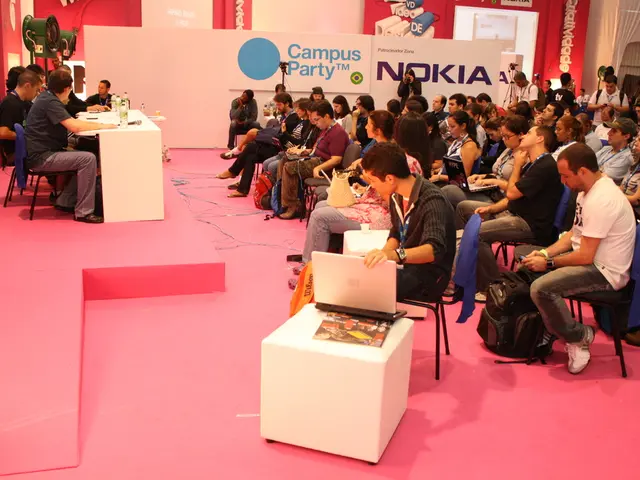Hyundai and General Motors to Forge a Global Partnership in Electric Vehicles and Clean Energy Technologies
In a significant move towards the future of automotive technology, Nissan Motor Co. and Honda Motor Co. announced a research agreement in August to explore the possibility of developing a platform and technologies for software-defined vehicles. This collaboration, along with several other partnerships established by top automakers, aims to accelerate innovation and lower the cost of producing next-generation vehicles.
One such partnership is between General Motors Co. and Hyundai Motor Co. The two companies recently signed a memorandum of understanding to explore collaboration, focusing on vehicles, advanced powertrains, and supply chains. This partnership intends to jointly develop five vehicles, including compact SUVs, cars, and pickups for Central and South American markets, plus an electric commercial van for North America. Production is planned for a 2028 launch, with an estimated annual sales volume exceeding 800,000 units.
Hyundai Motor Group executive chair Euisun Chung stated that the partnership with GM aims to enhance competitiveness in key markets and vehicle segments, drive cost efficiencies, and provide stronger customer value through combined expertise and innovative technologies. The partnership also aligns with Hyundai's strategic plan, aiming to achieve global sales of 5.5 million vehicles a year by 2030, a 30% increase from its previous 4.2 million unit sales target in 2023.
To support these initiatives, Hyundai plans to invest KRW 120.5 trillion ($90 billion) through 2033. This investment will be directed towards expanding Hyundai's leadership in electric vehicles, hydrogen fuel cell technologies, autonomous driving, and urban air mobility, as part of its Strategy 2025 and broader energy transition vision.
Meanwhile, General Motors Co. and Samsung SDI have finalized a joint venture agreement on a $3.5 billion electric vehicle battery manufacturing plant. The New Carlisle, Indiana, factory is expected to begin production in 2027, a year later than anticipated.
The collaboration between Nissan, Honda, and GM is not the only instance of automakers joining forces to tackle the challenges of the future. Volkswagen invested $1 billion in Rivian as part of a joint venture agreement to create the next-generation electrical/electronic architecture for EVs in June.
These partnerships underscore the industry's recognition that collaboration is key to driving down costs, improving efficiency, and staying competitive in the rapidly evolving automotive landscape. The companies will begin assessing collaboration opportunities and progression towards binding agreements immediately. They will also explore opportunities for the combined sourcing of raw materials, including steel and critical materials for EV batteries.
As the automotive industry continues to evolve, these collaborations are set to shape the future of mobility, driving innovation, and providing consumers with a wider range of sustainable and technologically advanced vehicles.
Read also:
- Transforming Digital Inventories in the Food Industry: A Comprehensive Guide for Food Businesses
- 1. Key Points for August 14: Gathering in Alaska, Immigration Enforcement (ICE), Financial service Zelle, Infowars, and Air Canada Airline Incidents
- Automobile manufacturer IM Motors reveals an extended-range powertrain akin to installing an internal combustion engine in a Tesla Model Y.
- Conflict Erupts Between Musk and Apple Over Apple Store's Neglect of Grok




